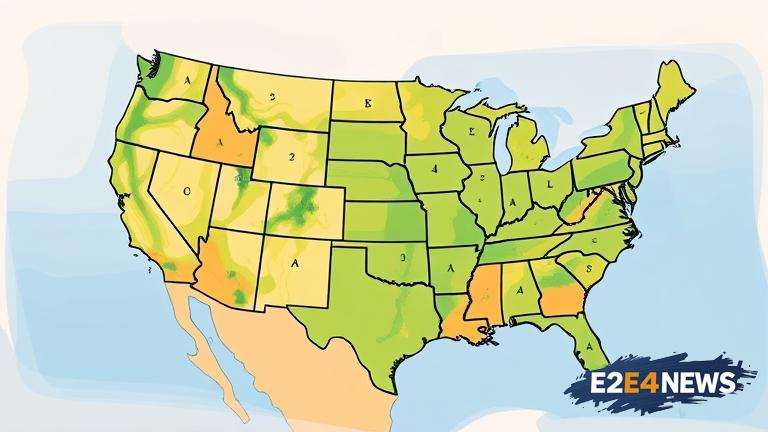The US government has made a significant decision to cancel designated wind energy areas, which were previously identified as potential locations for offshore wind farms. This move has sent shockwaves throughout the renewable energy industry, with many experts and stakeholders expressing disappointment and concern about the implications. The designated areas, which were located off the coasts of various states, including California, Oregon, and Hawaii, were seen as crucial for the development of offshore wind energy in the US. The cancellation of these areas is expected to hinder the growth of the industry, which has been gaining momentum in recent years. The US has been lagging behind other countries in terms of offshore wind energy development, and this decision is likely to widen the gap. The reasons behind the cancellation are not entirely clear, but it is believed that the decision was made due to a combination of factors, including concerns about the environmental impact of offshore wind farms and the potential effects on marine life. However, many experts argue that the benefits of offshore wind energy far outweigh the potential risks, and that the US is missing out on a vital opportunity to reduce its reliance on fossil fuels and mitigate climate change. The cancellation of the designated wind energy areas is also expected to have economic implications, as the development of offshore wind farms could have created thousands of jobs and generated significant revenue for local communities. The decision has been met with criticism from environmental groups and renewable energy advocates, who argue that the US should be prioritizing the development of clean energy sources rather than abandoning them. The US has set ambitious targets to reduce its greenhouse gas emissions and transition to a low-carbon economy, but the cancellation of the designated wind energy areas raises questions about the country’s commitment to meeting these goals. The offshore wind energy industry has been growing rapidly in recent years, with many countries investing heavily in the development of offshore wind farms. The US has the potential to become a major player in this industry, but the cancellation of the designated wind energy areas suggests that the country is not taking the necessary steps to capitalize on this opportunity. The decision is also likely to have implications for the global renewable energy market, as the US is a significant player in the industry. The cancellation of the designated wind energy areas may lead to a shift in investment and development to other countries, such as the UK and China, which are already leading the way in offshore wind energy development. The US government has stated that it will continue to support the development of offshore wind energy, but the cancellation of the designated wind energy areas suggests that the country’s priorities may be elsewhere. The decision has been met with disappointment from the renewable energy industry, which had been hoping to see the US take a more proactive approach to developing offshore wind energy. The cancellation of the designated wind energy areas is a significant setback for the industry, and it remains to be seen how the US will move forward with its renewable energy goals. The US has a long way to go in terms of reducing its reliance on fossil fuels and transitioning to a low-carbon economy, and the cancellation of the designated wind energy areas is a step in the wrong direction. The decision is likely to have far-reaching implications for the environment, the economy, and the renewable energy industry, and it will be interesting to see how the US responds to the criticism and concern that has been raised. The US government must reconsider its decision and prioritize the development of offshore wind energy, which has the potential to play a significant role in reducing the country’s greenhouse gas emissions and mitigating climate change. The cancellation of the designated wind energy areas is a missed opportunity for the US to take a leadership role in the development of offshore wind energy, and it is imperative that the country takes a more proactive approach to developing this vital source of renewable energy. The US must learn from the experiences of other countries, such as the UK and Denmark, which have successfully developed offshore wind energy industries and are now reaping the benefits. The development of offshore wind energy is a complex and challenging process, but it is essential that the US takes a more proactive approach to developing this industry, which has the potential to create thousands of jobs and generate significant revenue for local communities. The cancellation of the designated wind energy areas is a significant setback for the US, but it is not too late for the country to change course and prioritize the development of offshore wind energy.
